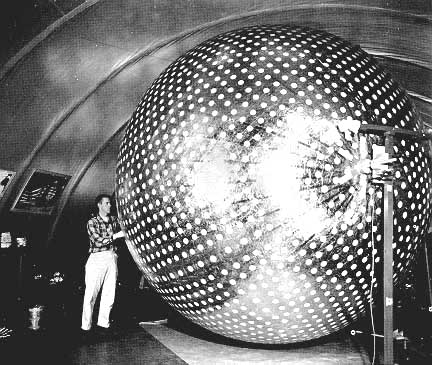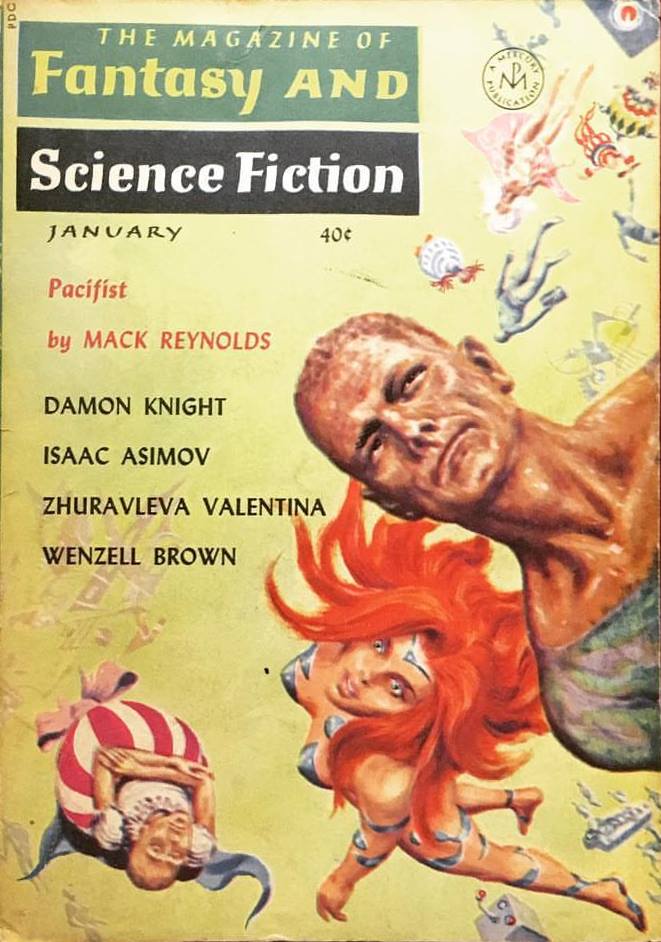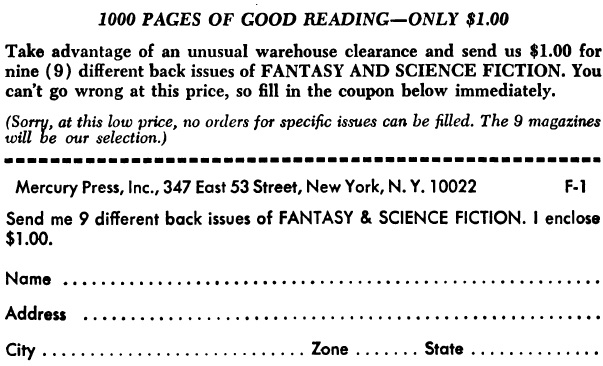
by Gideon Marcus
Every Silver Lining has a Cloud
What an exciting month January was! From President Johnson's declaration of war on poverty to the launching of the Ranger 6 moon mission, not to mention this week's premiere of the amazing satire/horror, Dr. Strangelove, this year is shaping up to be a good one.
But while real life and the silver screen may offer superlative pleasures, this month's written sf , at least on this side of the Pond, has been rather lackluster. This month's Analog is no exception. In fact, it rests near the bottom of the pack. That said, it's not a complete loss — so long as you know what you're getting into:
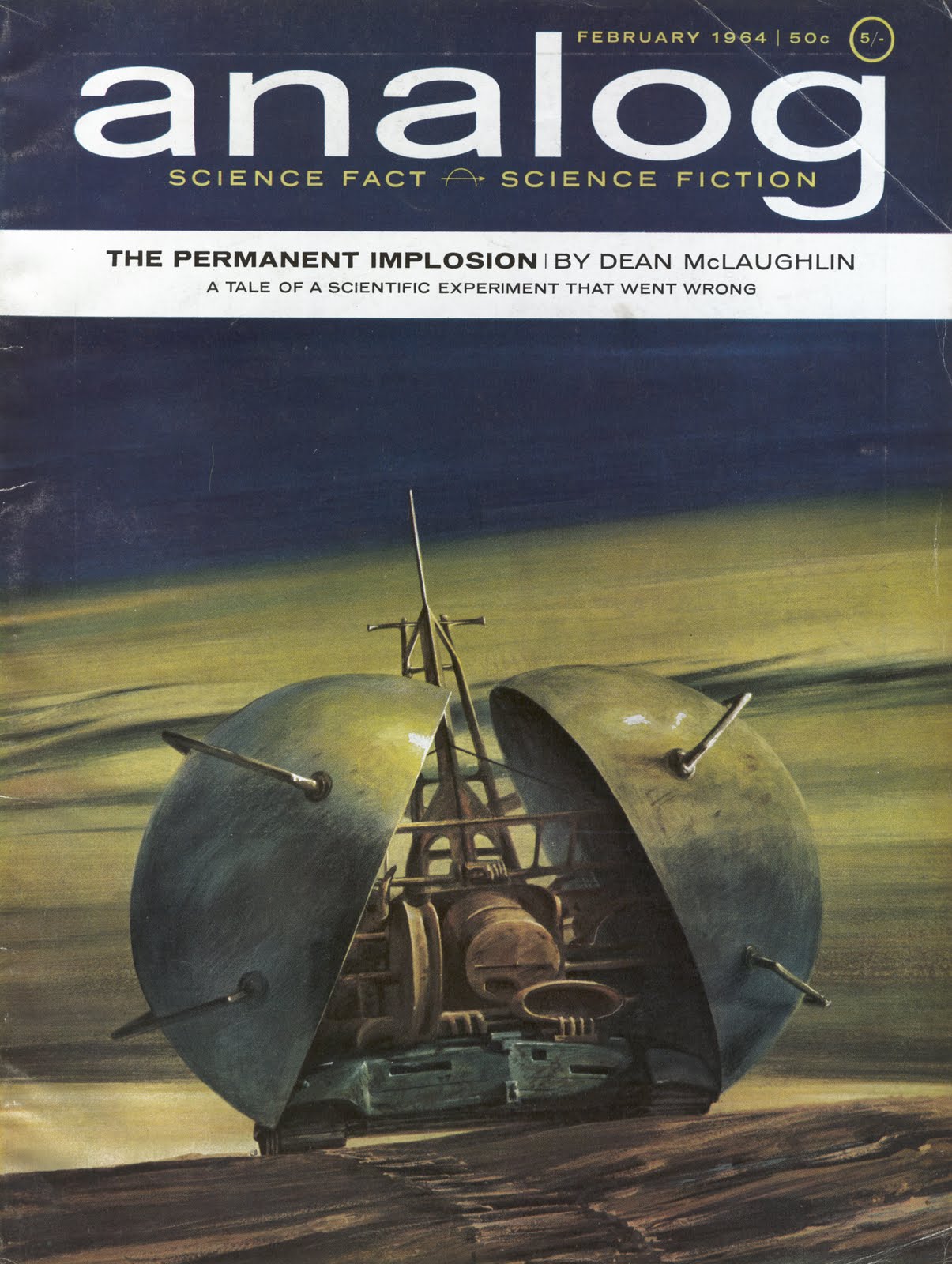
The Issue at Hand
Secondary Meterorites (Part 2 of 2), by Ralph A. Hall, M.D.
Dr. Hall returns to tell us more about the hypothesis that the majority of meteors that hit our planet are actually pieces of other planets knocked off when they were hit by meteorites. It is, if anything, less comprehensible than the last article. And that's coming from a fellow who studied astrophysics in college and reads journal articles for fun.
One star.
The Permanent Implosion, by Dean McLaughlin
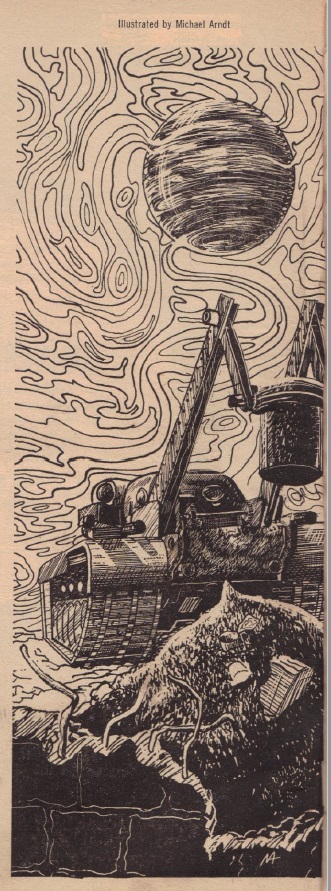
When a bunch of Colorado eggheads blow a hole in the fabric of the universe, all of Earth's air starts whistling to nowhere like water draining from a bathtub. Mick Candido, an oilman with a talent for capping blown and burning wells, is called in to plug the hole.
This is a smartly written tale whose obvious solution is obscured by deft authorial misdirection. It's not a story for the ages, but it's solid Analog fare. Three stars.
Crackpots, Inc., by Richard L. Davis
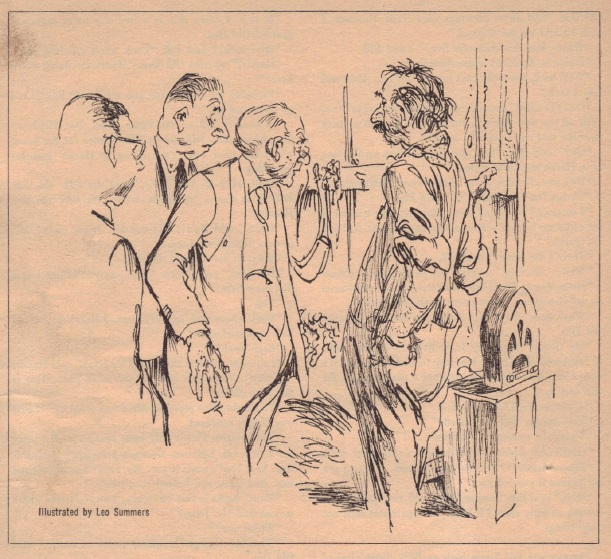
On the other hand, Crackpots is uniquely Analog fare. A rural hayseed has purportedly invented perpetual motion, but his feat cannot be duplicated by scientists. Turns out, it's because the machine is powered by the hick's psychic energies. The only way this piece could have been more to Campbell's taste is if it included dowsing.
One star.
Dune World (Part 3 of 3), by Frank Herbert
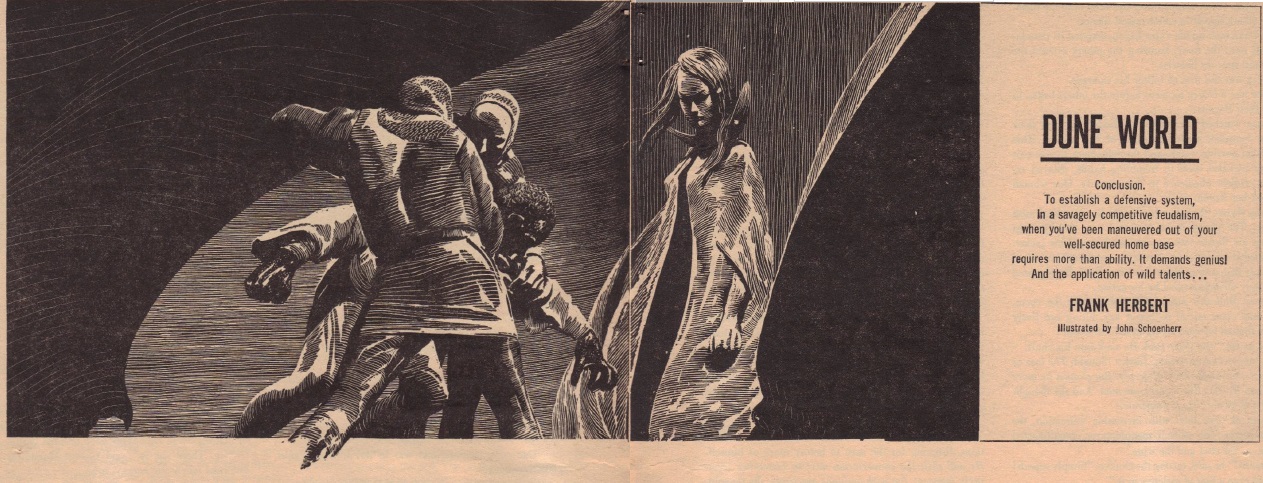
I'm going to spare some inches for this one since I know this has been a popular serial. In the far future, humanity has spread out among the stars. Civilization is a strange mix of the advanced and the primitive. There are faster-than-light ships, electro-magnetic shields, and laser guns, On the other hand, computers are outlawed, with savant "Mentats" filling the role. Society runs along feudal lines, its politics Machiavellian to the extreme. To wit:
Baron Harkonnen, lord of the desert planet, Arrakis, is ordered by the Padishah Emperor to give his fief to Duke Leto Atreides. On the face of things, this is a boon. Arrakis is the only source of the anti-geriatic spice melange, control of which makes one very rich. However, the transfer is a baited trap. Not only is a legion of the Emperor's troops poised to seize the fief should Leto stumble, but one of Leto's lieutenants is a traitor in the pay of Harkonnen.
Added to the mix: Leto's mistress, Lady Jessica, member of the female-only Bene Gesserit order, who has keen perception and the ability to control others with her voice. Her son, Paul, who may be the satisfaction of a prophecy that predicts a male possessor of Bene Gesserit powers. The "Fremen" natives of Arrakis appear to be primitives yet there is evidence that suggests they possess a great technology. Finally, we have Kynes, an Imperial surveyor who seems to know the secrets of Arrakis but refuses to play his hand openly.
Not much happens in Dune World. There are lots of conversations where people reveal the history of Arrakis. There is an attempt on Paul's life. Leto saves some spice miners from a sandworm. There is a feast in the Atreides stronghold with more exposition. The traitor's plan comes to fruition, with the Duke put in mortal peril and his family forced into exile. There is no real resolution; I suspect Herbert plans a sequel.
Author Herbert has an intricate grand plan, and he's certainly not stinted on world building. The various cultures are richly detailed. There is a refreshing abundance of foreign language and concepts, particularly from Arabic. What keeps Dune World from being a masterpiece, or even especially enjoyable, is that Herbert's writing chops just aren't up to turning this byzantine mess of a plot into a story. There are more swaths of italicized text than in the footnotes of a legal contract, and the viewpoint shifts constantly, often every other sentence. A typical example from page 49:
"Now I know you remain loyal to my Duke," she said. "Therefore I'm prepared to forgive your affront to me."
"Is there something to forgive? he asked.
Jessica scowled, wondering, Shall I play my trump? Shall I tell him of the Duke's daughter I've carried within me these two weeks? No, Leto himself doesn't know and this would only complicate his life, divert him when he must concentrate on our survival. There is yet time to use this.
And Hawat thought: She's even beautiful when she's angry. An extremely difficult adversary.
The traitor is revealed early on; the mystery is why he's betrayed Duke Leto. That said, the identity of the betrayer could have been handled as a double mystery, which would have been more interesting.
At serial's end, Paul has a soothsaying dream and learns several secrets of Arrakis and spice. It's all very arbitrary and unsatisfying.
Herbert has created something like a well researched but dry encyclopedia article on a fascinating topic. I wanted to know more about Arrakis and Paul's prophecy, but getting through the (half) novel was often a slog.
Maybe a good editor will help Herbert polish this up before its inevitable publication as a book.
Three stars for this installment and for the book as a whole.
Rx for Chaos, by Christopher Anvil
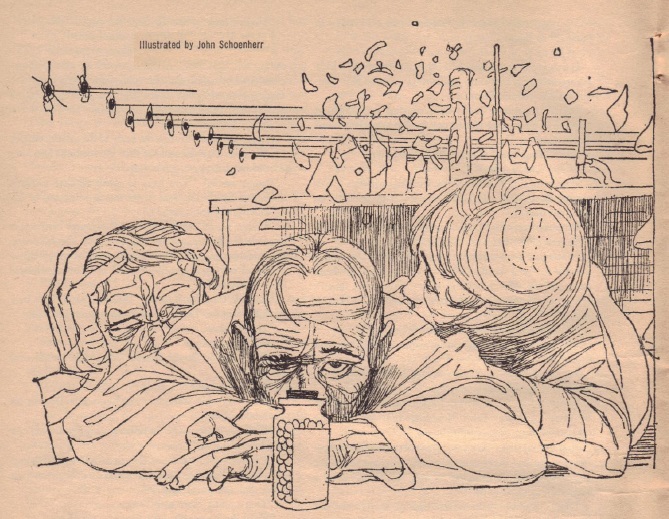
Another entry in the "Unintended Consequences of Science" department: Hangover-killing "De-tox" pills become bestsellers, but they also inhibit creativity and give rise to a fascist, anti-intellectual movement. It's typical Analog Anvil, written with tongue firmly lodged in cheek. It rates three stars, barely.
Names for Space Plants, by John Becker
Lots of words in these three short pages, but I've no idea what Becker is actually trying to say. One star.
The Analytic Laboratory

Add it all up, and Analog scores a limp 2.1 stars, only beaten for badness by this month's Amazing (2 stars even). F&SF is barely better at 2.2; Fantastic gets 2.6 but at least it's got a good Dick in it. Galaxy's 3 stars is also, in part, thanks to its Dick story. The only unalloyed triumph is the February New Worlds, which garnered 3.6 stars.
Women made up just two of the 38 authors who wrote fiction for magazines this month.
As for books, again, it was the British stuff that stood out. Brian Aldiss' new fix-up got four stars, per Jason Sacks, whereas neither this month's Ace Double nor Laurence Janifer's second effort stunned.
Next month is my birthday month, though, and I'm certain the writers in my favorite genre wouldn't let me down on my 39th birthday.
Right?

![[February 1, 1964] The Vast Wasteland (February 1964 <i>Analog</i>)](https://galacticjourney.org/wp-content/uploads/2019/01/640201cover-672x372.jpg)

![[January 28, 1964] Beatles, Prisons and Doctors ( <i>New Worlds</i>, February 1964)](https://galacticjourney.org/wp-content/uploads/2019/01/640128cover-652x372.jpg)

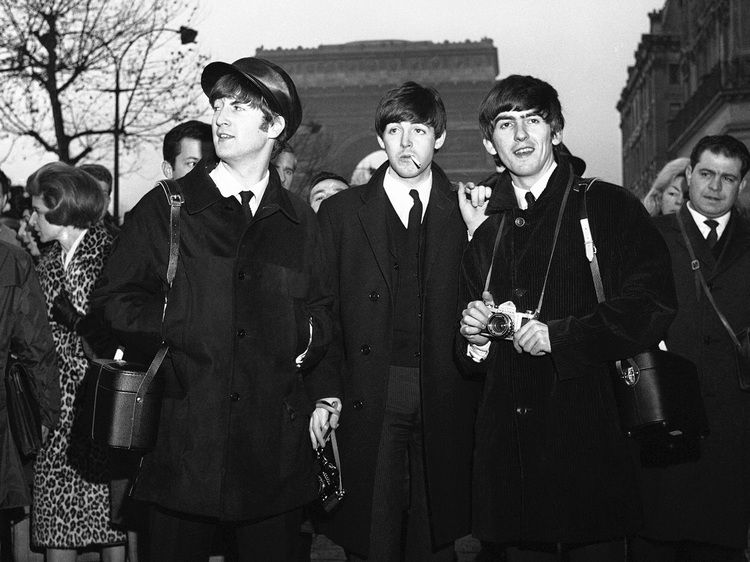
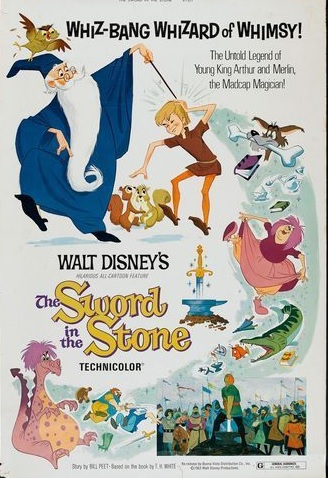
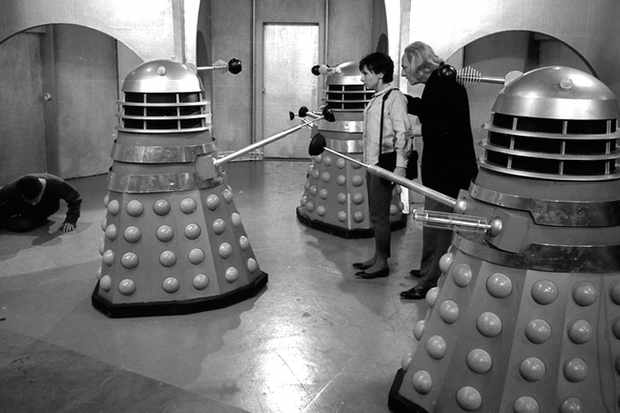
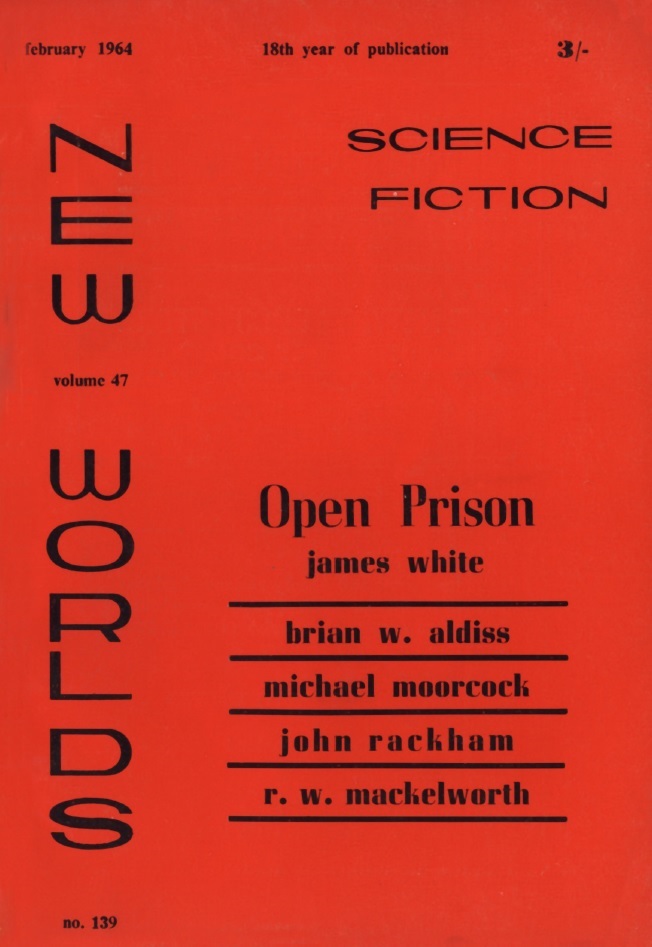
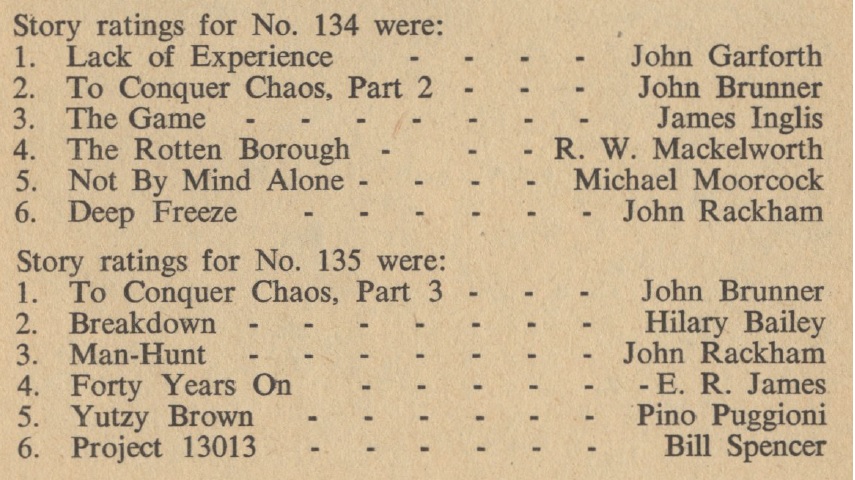
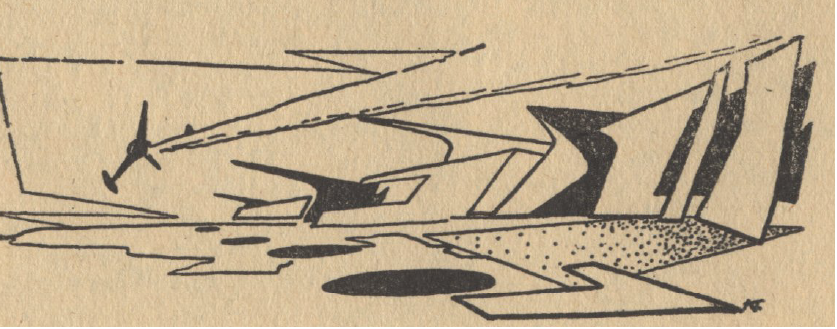
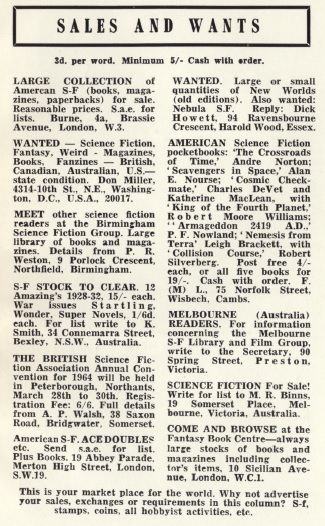
![[January 22, 1964] The British Are Coming! The Americans Are Here! (February 1964 <i>Fantastic</i>)](https://galacticjourney.org/wp-content/uploads/2019/01/640122cover-513x372.jpg)




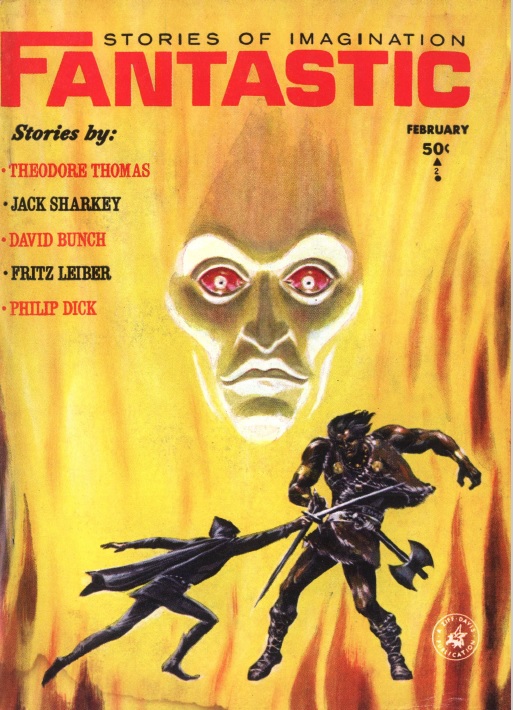
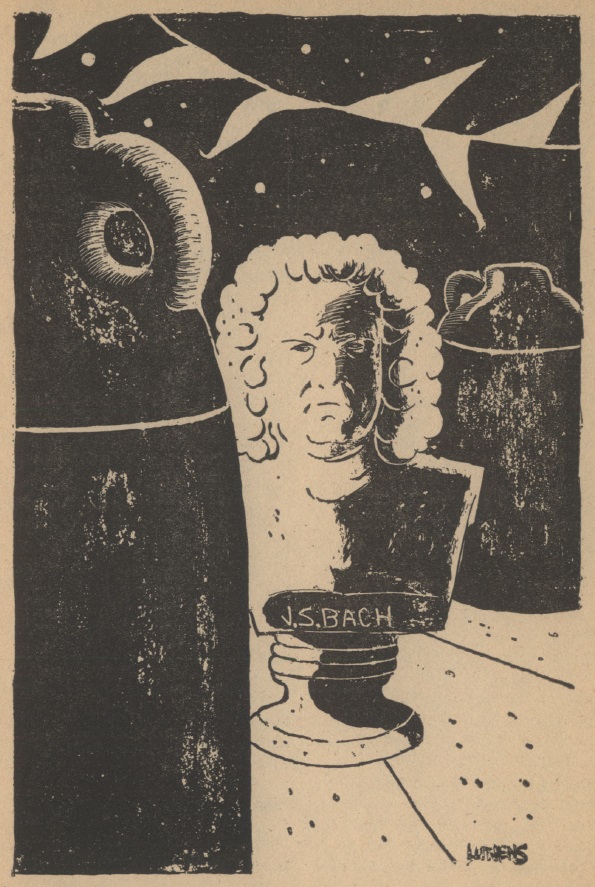
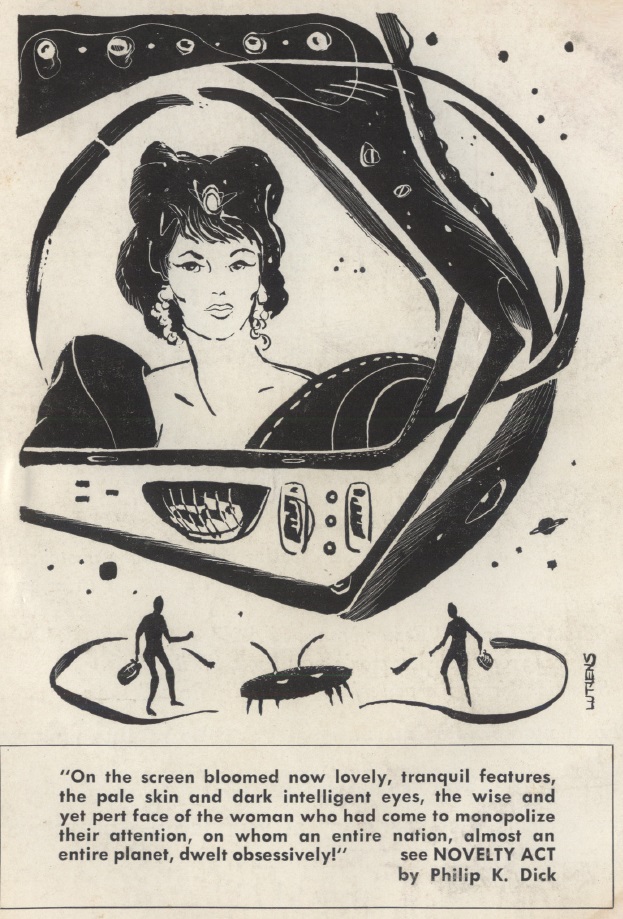
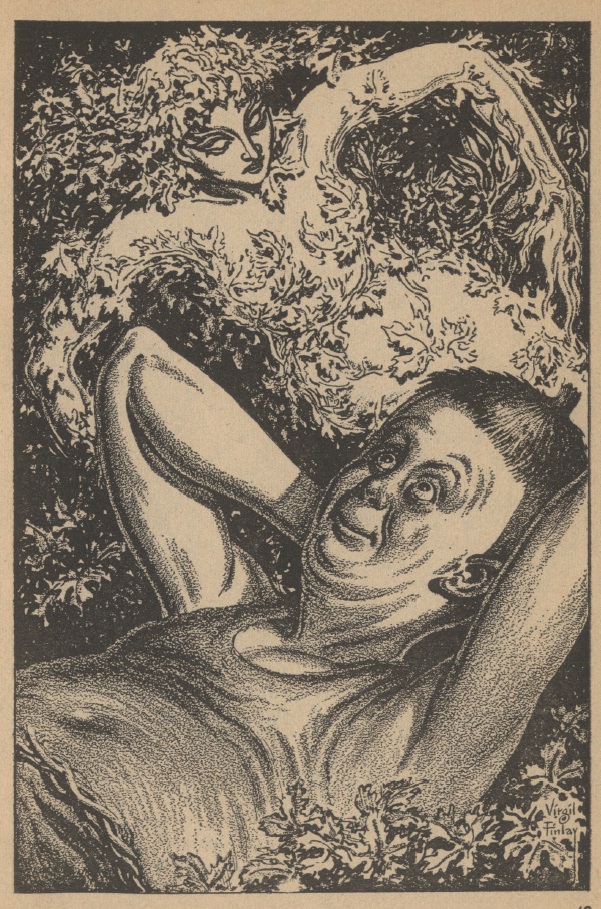
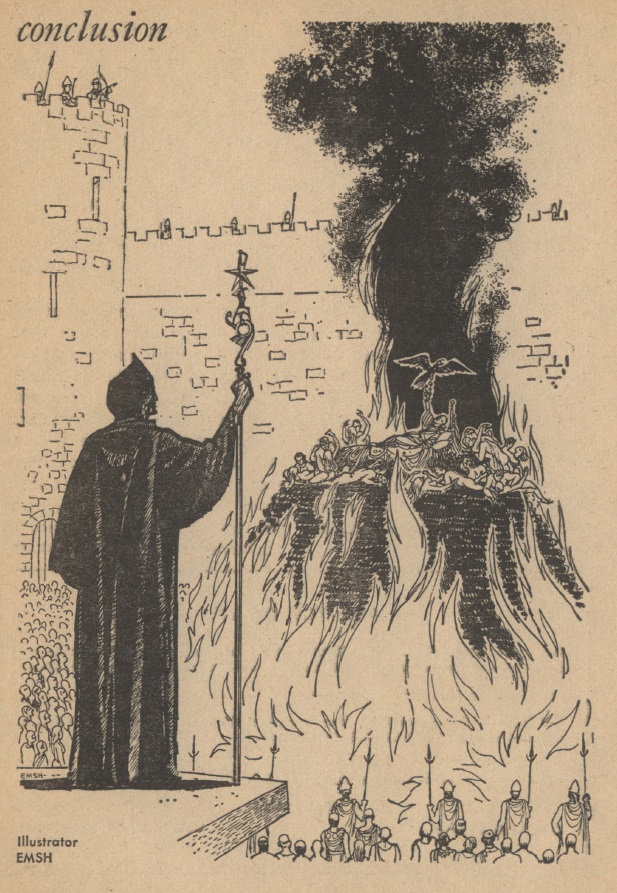


![[January 18, 1964] Pig's Lipstick (February 1964 <i>Fantasy and Science Fiction</i>)](https://galacticjourney.org/wp-content/uploads/2019/01/640418cover-554x372.jpg)
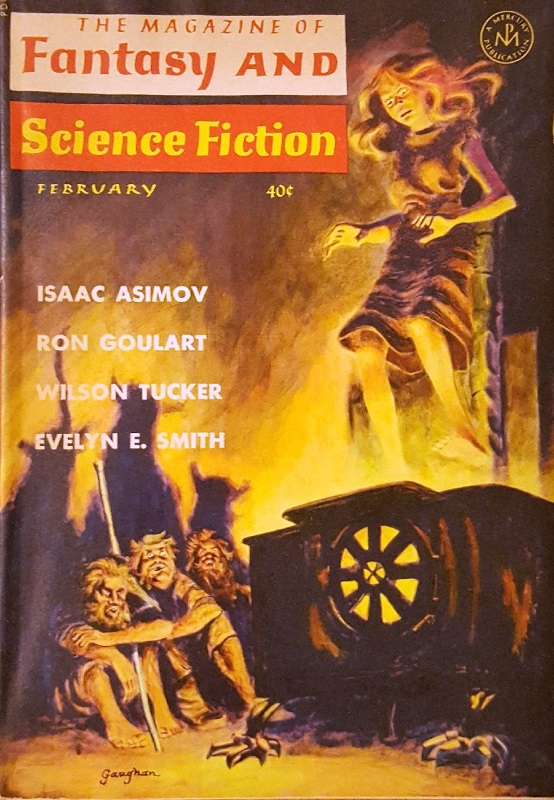


![[January 12, 1964] SINKING OUT OF SIGHT (the February 1964 <i>Amazing</i>)](https://galacticjourney.org/wp-content/uploads/2019/01/640112cover-672x372.jpg)






![[January 8, 1964] A Taste of Homely (February 1964 <i>Galaxy</i>)](https://galacticjourney.org/wp-content/uploads/2019/01/640108cover-570x372.jpg)





![[January 2, 1964] All's well that ends well (January 1964 <i>Analog</i> science fiction)](https://galacticjourney.org/wp-content/uploads/2019/01/640102cover-653x372.jpg)












![[December 27, 1963] Democracy, Doctors and Decline ( <i>New Worlds, January 1964</i>)](https://galacticjourney.org/wp-content/uploads/2018/12/631227cover-645x372.jpg)
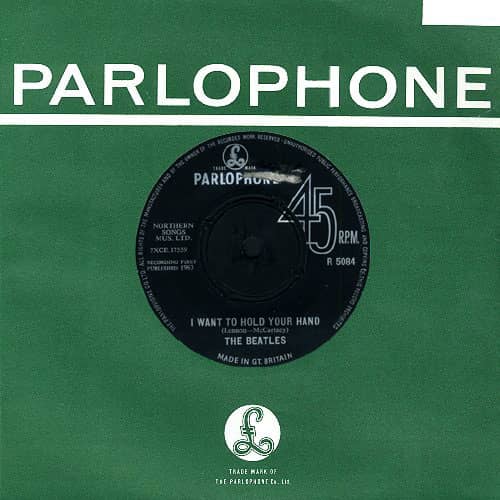
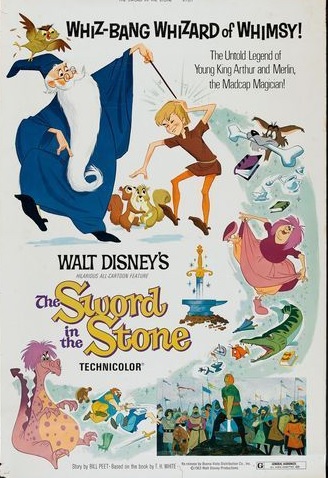


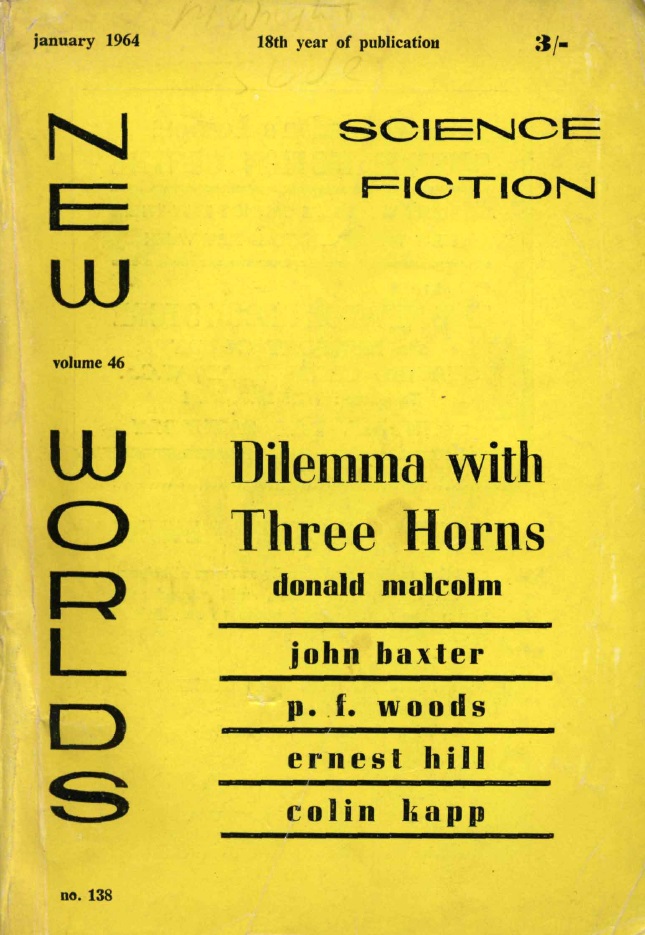

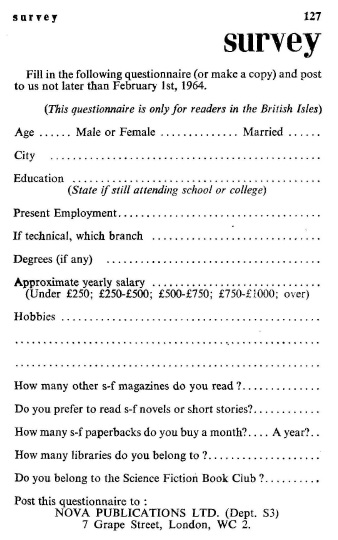

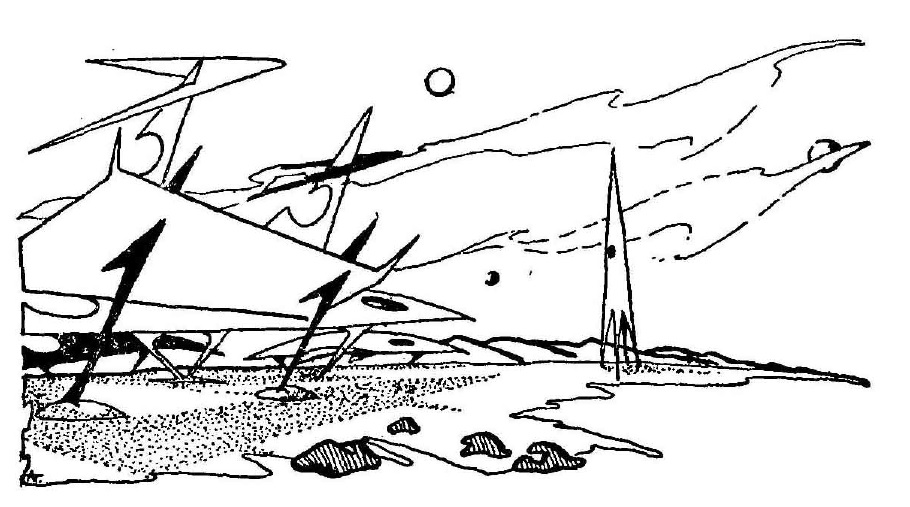
![[December 23, 1963] Ring Out the Old, Ring In the New (January 1964 <i>Fantastic</i>)](https://galacticjourney.org/wp-content/uploads/2018/12/631223cover-487x372.jpg)


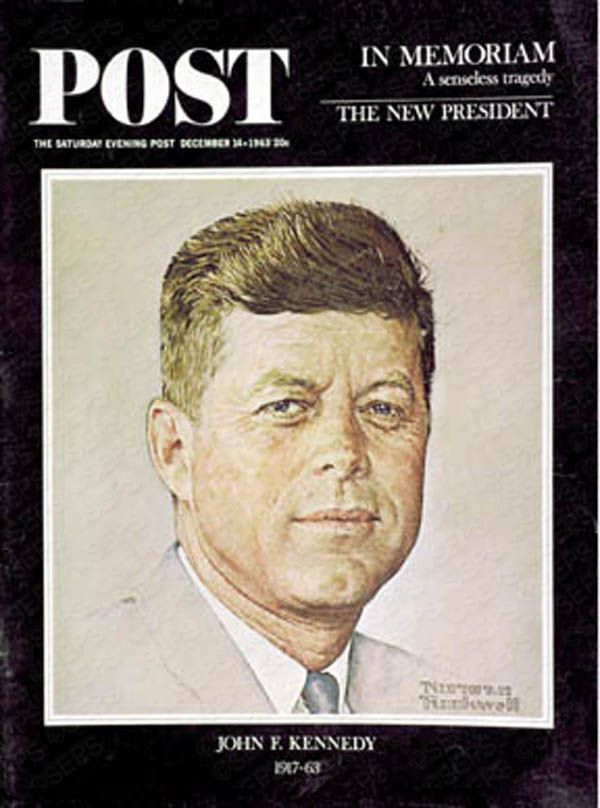




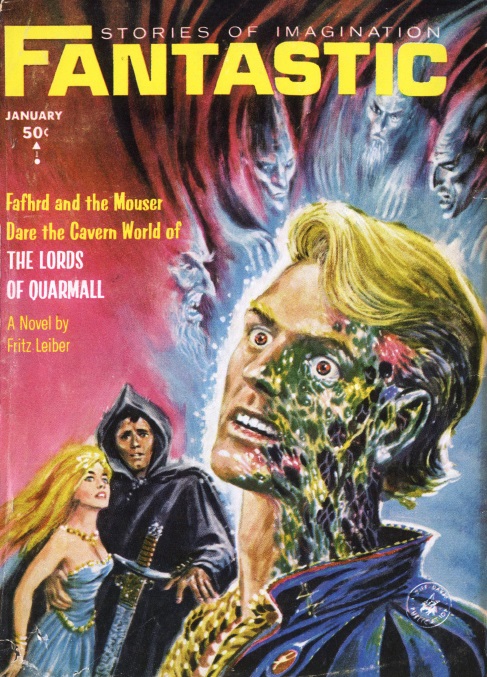

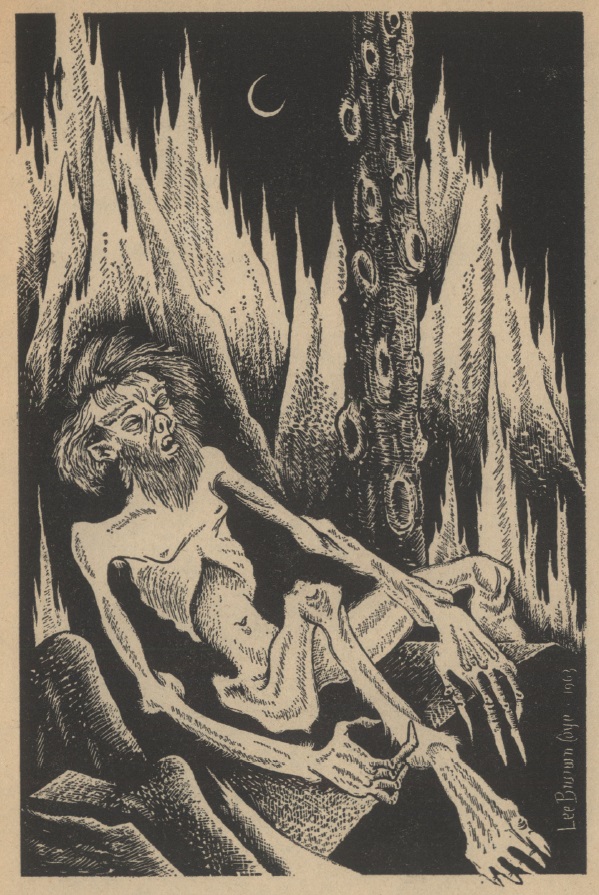

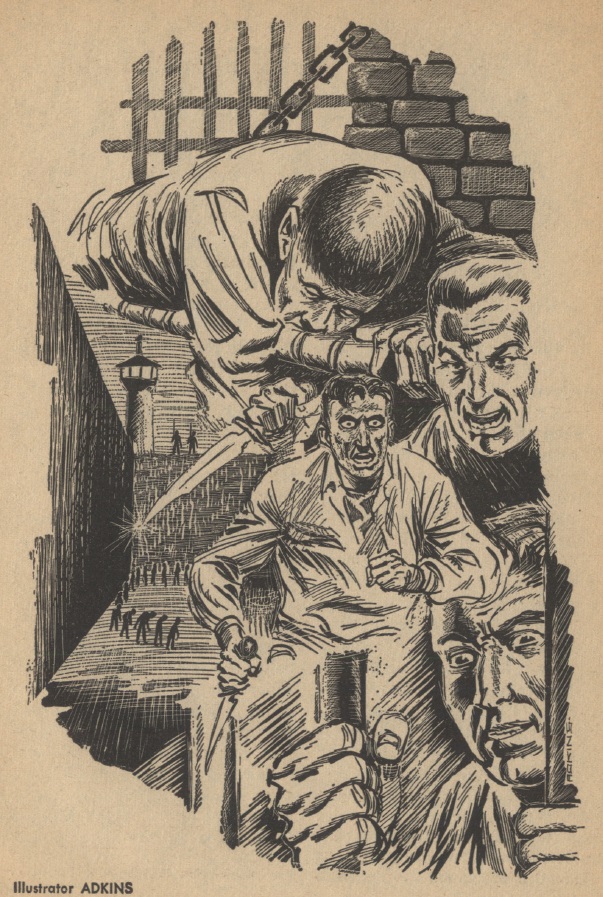


![[December 21, 1963] Soaring and Plummeting (January 1964 <i>Fantasy and Science Fiction</i>)](https://galacticjourney.org/wp-content/uploads/2018/12/631221cover-661x372.jpg)

